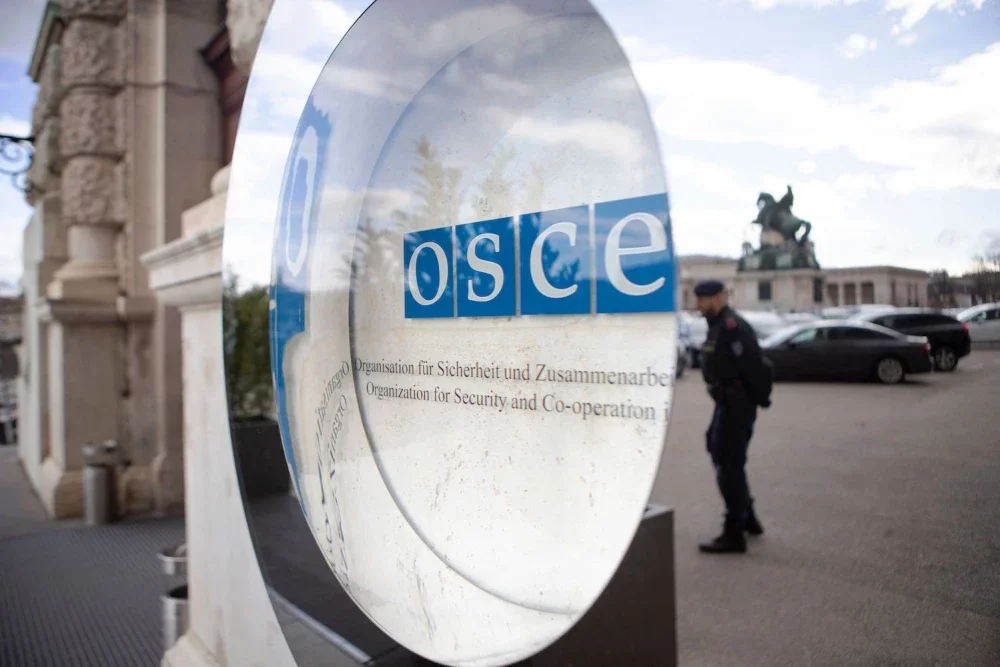CSI Osh: Kyrgyzstan and the OSCE
The bloody events in Kyrgyzstan during the course of this year are well known: firstly, there was the completely unexpected ousting of the highly corrupt regime of Kurmanbek Bakiev in April this year which could not even be avoided by orders to apparently open fire on demonstrators indiscriminately. This was followed by the bloody events in June in the south of the country where, virtually unexpectedly, the towns of Osh and Jalalabad suddenly became the scene of widespread looting and the killing of particularly members of the large Uzbek minority in the region. Hundreds of people lost their lives in just a couple of days. The violence and bloodshed were unprecedented in this poor and small Central-Asian country.
Although the OSCE is present in Kyrgyzstan with a Centre in Bishkek and an affiliate office in Osh, the organization has not been able to do much more than simply observing the developing events. And although the Kazakh chairmanship tried to step in by having the ousted President Bakiev leave the country for his present ‘holiday’ abode close to his friend Lukashenko in Belarus, at the same time Kazakhstan closed all its borders in order to avoid the spread of the Kyrgyz virus into the Kazakh steppes, thereby extensively damaging the Kyrgyz economy. The year-long OSCE police assistance programme for Kyrgyzstan which has brought the country millions of euros in foreign aid also turned out to be unable to prevent the disaster. What the OSCE-equipped and trained police riot squads in both Bishkek and Osh were doing during those days in April and June remains something of a mystery as well. In any event, it was abundantly clear that whatever early warning and early action mechanisms the OSCE has, they all completely failed to alert the international community as to the possible forthcoming mayhem in this strategically located country in Central Asia. This also reflects a lack of political will in the Permanent Council to address major problems head-on.
Apart from numerous visits by OSCE personalities to the country (which definitely form an important part of the organization’s political dialogue mandate), the organization has not come up with much substantial assistance. After various assessment trips, the idea emerged to dispatch a Police Advisory Group (PAG) of 52 foreign police officers which received the required consensus in July. Its task would be to assist and advise the Kyrgyz police in the south of the country in coping with the turbulent situation there. Although the idea acquired the necessary consensus within the Permanent Council, so far the group has never been dispatched due to growing unease on the Kyrgyz side. Quite a few Kyrgyz state bodies, in particular also the Kyrgyz police, joined by local officials in the south, turned out to be strongly against this foreign element in the southern region of the country. The powerfully organized criminal mafia in the region probably also had some influence concerning local feelings with regard to the OSCE’s planned arrival. It was not only state bodies, but also civil society groups which opposed this OSCE action which was aimed at helping the country to cope with the aftermath of the June turmoil. The result was that the PAG has been buried before its official launch, not as a result of unwillingness on the side of the OSCE, but due to a lack of enthusiasm at the receiving end.
In November this idea was replaced by a Community Security Initiative that received PC approval on the 18th of this month. It strongly resembles what the OSCE has been doing over the past few years in providing substantial assistance to the Kyrgyz police in the area of police reform and community policing. For this purpose a group of 31 foreign policing experts and 27 local support staff will be created which will advise police units in the south of the country in fostering relations with the community, including with different ethnic groups. However, certain activities may also take place in other areas in the country, again demonstrating that this new initiative is related much more to police reform in general than the specific problems in the south. The main focus of the project will be eight police stations in the south and two police stations in the Chuy region. The budget for this one-year project is a little over 3 million euros which has to be raised through voluntary contributions from the OSCE participating states. I have the strong impression that this new CSI initiative will have even less impact than the originally designed PAG, as it does not seem to be designed to focus on the key problems which lay behind the turmoil in June. But with the right choice of good experts, it may have some positive influence.



Comments
* Your email address will not be published